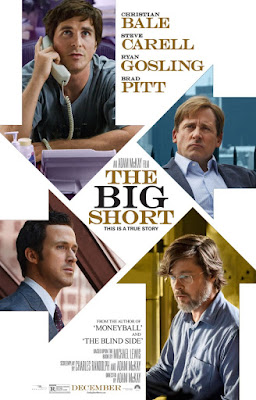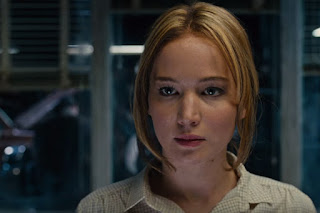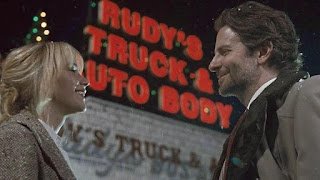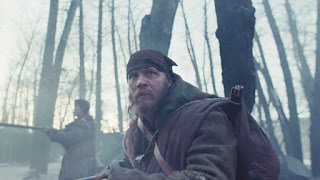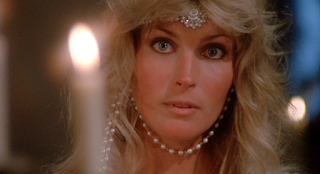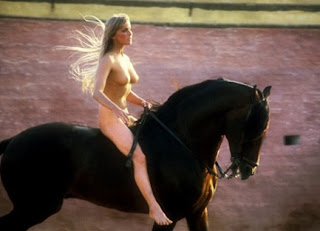CREED
(US - 2015)
Directed by Ryan Coogler. Written by Ryan Coogler and Aaron Covington. Cast: Michael B. Jordan, Sylvester Stallone, Tessa Thompson, Phylicia Rashad, Andre Ward, Anthony Bellew, Graham McTavish, Ritchie Coster, Wood Harris, Jacob "Stitch" Duran, Ricardo McGill, Malik Bazille, Gabriel Rosado, Frank Pesce. (PG-13, 133 mins)
"Time takes everybody out. It's undefeated."
When CREED was first announced a couple of years ago, with a plot focusing on the son of Apollo Creed being trained by Rocky Balboa, the immediate reaction of most was eye-rolling dismissal. It sounded like a desperate ploy by Sylvester Stallone to keep the ROCKY franchise going by remaking it with himself in Burgess Meredith's Mickey role. It sounded like the kind of cheap, cynical DTV spinoff along the lines of a CARLITO'S WAY: RISE TO POWER, an EASY RIDER: THE RIDE BACK, and the still-unreleased THE BRONX BULL, which was shot as RAGING BULL II prior to succumbing to various legal issues that have kept it on the self since 2012. Even if it's approached with lowered expectations, CREED is one of the biggest surprises of the year. In the hands of director/co-writer Ryan Coogler (2013's acclaimed FRUITVALE STATION), CREED is so much more than a Stallone nostalgia trip. It's a thoughtful and perceptive film about families, legacies, loss, and new beginnings. Ghosts of the past haunt nearly every scene. The legacy of the late Apollo Creed (Carl Weathers), killed in the ring in ROCKY IV (1985), unites two men: his best friend and former foe Rocky (Stallone) and Adonis (Michael B. Jordan), the son whose birth Apollo didn't live to see.
The result of an extramarital affair between his mother and Apollo Creed, Adonis Johnson was orphaned at a young age, had severe anger management issues, and seemed doomed to a life in juvenile detention when he wasn't bouncing around foster care and group homes until he was 13, when Apollo's widow Mary Anne (Phylicia Rashad) found him, took him in, and adopted him. Keeping his mother's last name to both honor her and avoid getting a free ride on his father's legend, Adonis establishes himself as a capable fighter in illegal Tijuana boxing matches while maintaining a day job at a prestigious investment firm in Los Angeles, where he's just gotten a promotion before promptly quitting to pursue boxing full-time. This angers Mary Anne, who remembers what it was like taking care of Apollo after his fights ("Do you know how many times I had to help the Heavyweight Champion of the World up these stairs because he couldn't walk? Do you know how many times I had to wipe his ass because he couldn't use his hands?"), but she's powerless to stop him. Adonis heads to Philadelphia to track down Rocky. He finds him, still running Adrian's, the small neighborhood Italian restaurant named in honor of his late wife, who died prior to the events of 2006's ROCKY BALBOA. Rocky is happy to tell Adonis stories about his dad but firmly states he has no interest in becoming his trainer, instead sending him to Mighty Mick's Gym, now being run by Pete Sporino (Ritchie Coster), who keeps trying to get Rocky's celebrity name attached to his own son Leo "The Lion" Sporino (Gabriel Rosado). Of course, it doesn't take long for lonely Rocky, who's once again estranged from Rocky, Jr and who also lost his brother-in-law Paulie (Burt Young) and Apollo's trainer Duke (Tony Burton) in the years since ROCKY BALBOA, to see Apollo's spirit in Adonis and take him up on the training offer, not having much in the way of book smarts to give the educated Adonis but dispensing the sage advice he's learned from experience over his lifetime ("See that guy in the mirror? That's your biggest opponent. I believe that in the ring and I believe that in life"). Adonis, meanwhile, falls for his neighbor Bianca (Tessa Thompson), an aspiring singer who's suffering from progressive hearing loss.
The story structure of CREED--the first ROCKY film not written by Stallone--is largely formulaic in its point A-to-point B plot mechanics: Adonis establishes a name for himself, eventually accepting his lineage and going by Adonis Creed when Pete leaks his true identity to the media, and becomes a recognized fighter over the course of the film, eventually taking on the champion "Pretty Ricky" Conlan (Anthony Bellew) in a Liverpool bout hastily arranged by Conlan's manager (Graham McTavish) to pay the bills while Conlan serves a seven-year prison sentence on gun charges. Stallone directed four of the six previous ROCKY movies, with John G. Avildsen helming 1976's ROCKY and 1990's ROCKY V, and both men are the sort-of capable journeyman types whose skills can best be described as "workmanlike." Coogler, on the other hand, displays more confidence and skill at just 29 than Stallone and Avildsen could've brought to the table, the innovative Steadicam contributions of Garrett Brown in the 1976 film notwithstanding. Coogler and veteran cinematographer Maryse Alberti (WHEN WE WERE KINGS) have fashioned some of the best fight sequences you'll see in the boxing genre, especially in Adonis' bout with The Lion, where the entire first round is shot in real time without a cut, the camera snaking around the ring, between and above the fighters, with a dizzying array of sounds from each of their corners drifiting in and out as they move around the ring. It's a stunning sequence, and along with the film's many long, uninterrupted tracking shots that follow Adonis or Rocky, indicative of a gifted director at work. Stallone must have had absolute faith in Coogler's vision to allow his most personal, iconic character to be placed entirely in someone else's hands. Coogler responds by making Rocky even more multi-layered and complex than ever, a man who knows he's a legend but remains humble, preferring his quiet, low-profile life and lamenting that all of his loved ones are gone and he's alone. Even in the midst of the formula elements (why does every aspiring boxer live in a shithole apartment?), CREED remains unpredictable: we expect Rocky Jr, now living in Vancouver and calling himself "Robert Balboa," to show up at a certain point in the film when Rocky needs him most. He doesn't. He's referenced once and never mentioned again. In some films, this could be an oversight, but here it's by design. Adonis is the son Rocky's lost through estrangement, and Rocky is the father Adonis never had (Adonis immediately endears himself to Rocky by repeatedly referring to him as "Unc"). We also expect Bianca's hearing loss to factor in, but it's introduced and matter-of-factly accepted. She puts her hearing aids in like someone putting on their reading glasses. There's nothing Adonis can do in the ring to restore her fading hearing, so like every other setback these characters face--and a big obstacle surfaces in the second half--they adjust to it and keep on fighting.
It would've been easy to cave to hokey sentimentality and maudlin manipulation, but when the waterworks start (this immediately joins the pantheon of Hall of Fame man-weepies--you can actually feel a wave of emotion in the audience late in the film when Bill Conti's "Rocky Theme" fires up), it's earned. Jordan is absolutely magnetic as Adonis, who's simultaneously running away from and directly toward the long shadow cast by his father ("I just want to know I'm not a mistake!" he yells when Rocky asks what he's trying to prove), but it's Stallone's Rocky who's the emotional core of CREED. This is a beloved character we've known for nearly 40 years, so much so that it practically transcends an actor playing a role. Stallone's had so many ups and downs throughout his career that he perfectly embodies that underdog spirit. It's enough to make you forget the cartoonish depths of the Reagan-era flag-waving of ROCKY IV (nobody likes the much-maligned ROCKY V, but at least it's better than ROCKY IV), even though CREED's springboard is Apollo's death at the hands of Soviet superfighter killing machine Ivan Drago (Dolph Lundgren), a tragedy for which Rocky still feels tremendous guilt over not throwing in the towel to stop. Now that he knows Adonis, Rocky feels a responsibility for him. Stallone, who at 69 is the same age Burgess Meredith was in ROCKY, is so lived-in and naturally comfortable as Rocky that you almost forget he's acting. He's presented with a challenge by Coogler and co-writer Aaron Covington's script and he rises to the occasion by delivering his most accomplished and invested performance in many years, probably going back to FIRST BLOOD in 1982. He's great in his big moments, but brilliant even in little ones, whether he's looking on with pride at Adonis or visiting the cemetery and talking to Adrian and Paulie ("It's gettin' harder to walk up that hill!" the arthritic Rocky says, catching his breath and pulling up a chair at Adrian's grave to tell her about his day). Filled with exhilarating boxing sequences, dazzling filmmaking (watch the way Coogler darkens the arena midway through the final fight as a way of illustrating the fighters' singular focus), gut-wrenching emotion, and honest, heartfelt performances, CREED is like nothing you'd expect a seventh film in the ROCKY series to be. More than a generic sequel-turned-reboot, CREED very much stands on it own as a terrific film and one of 2015's very best.































